What is Western Acupuncture?
What is Dry Needling?
And will they help me?
We are hearing these questions more and more from our clients and people on the forums we are a member of. Here’s a simple guide to Acupuncture and Dry Needling.
Acupuncture and dry needling are going in popularity among western and medical practitioners for the treatment of musculoskeletal conditions. Some Physiotherapists are now doing extra training to enhance their skills to offer western acupuncture and dry needling as a part of their treatments.
Published clinical trials have shown acupuncture and dry needling to be effective at treating a number of musculoskeletal conditions including lower back pain, neck pain, headaches, migraines, pelvic girdle pain, shoulder dysfunction, knee pain (particularly involving osteoarthritis), tennis elbow pain, temporomandibular joint (TMJ) pain and dysfunction, chronic pain and depression.
Acupuncture and dry needling are quite similar in their technique but the reason why your Physio may choose one over the other will be to do with your clinical presentation and symptoms.
What is Western Acupuncture?
Western acupuncture’ is a hybrid western medical version of acupuncture. The main difference lies in the way we understand how it works. In comparison to traditional Chinese Medicine, western acupuncturist apply a medical framework to observe and explain the effect as well as to decide on which acupuncture points to use.
What is Dry Needling?
Dry Needling involves needling the tissues in order to improve or restore function. In this way the effect is a little bit similar to a deep tissue massage or trigger points release (but trust us it hurts a LOT less). Dry needling uses solid filiform or acupuncture needles for therapy of musculoskeletal conditions. Dry needling contrasts with the use of a hollow hypodermic needlewhich are used to inject substances such as saline solution, botox or corticosteroids to the same point, but studies have found to find dry needling just as effective as the injection of substances into muscles and connective tissue to relieve pain.
Why see a Physiotherapist for Needling?
The key to effective acupuncture or dry needling is a a sound medical diagnosis from which clinical reasoning is applied by the physiotherapist as to the selection of local trigger points or acupuncture points used. Physiotherapists are the ideal practitioners of western acupuncture and dry needling due to their extensive anatomical knowledge and understanding of the effect of injury on healing tissues and movement. All Physiotherapists at Activate Physiotherapy have additional training in Western Acupuncture and Dry Needling and can use it to enhance your treatment.
Check out our Gallery to see some Acupuncture action shots
-
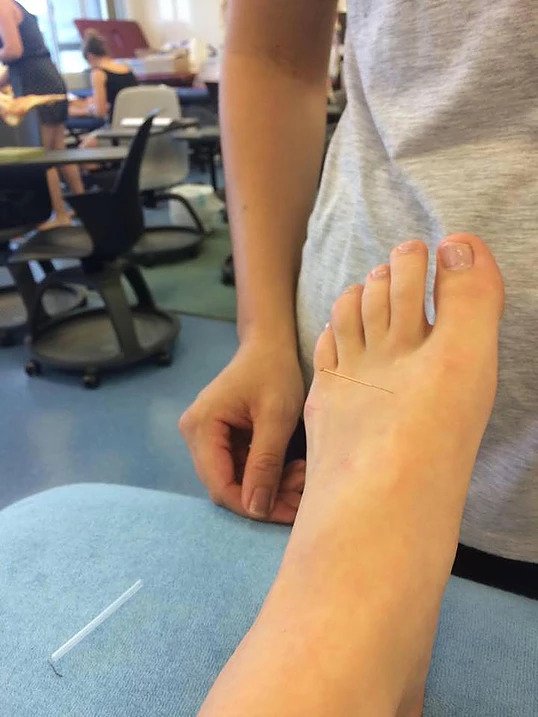
The foot has a lot of strong acupuncture points which can be effective for local pain as well as pain in other areas of the body -
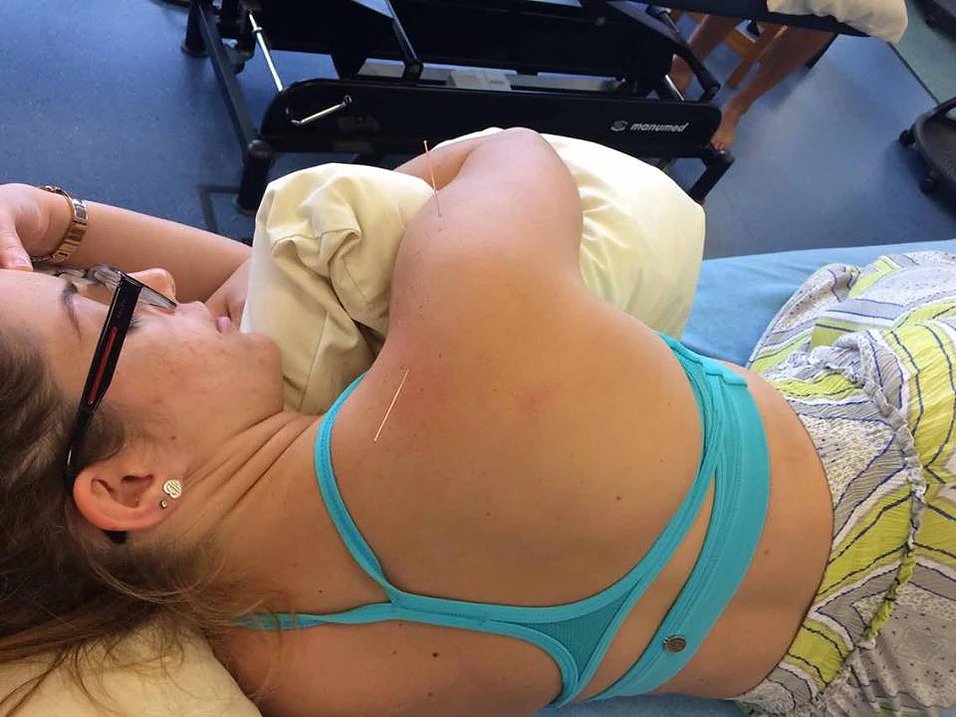
Acupuncture around the shoulder and neck is great for postural pain and headaches -
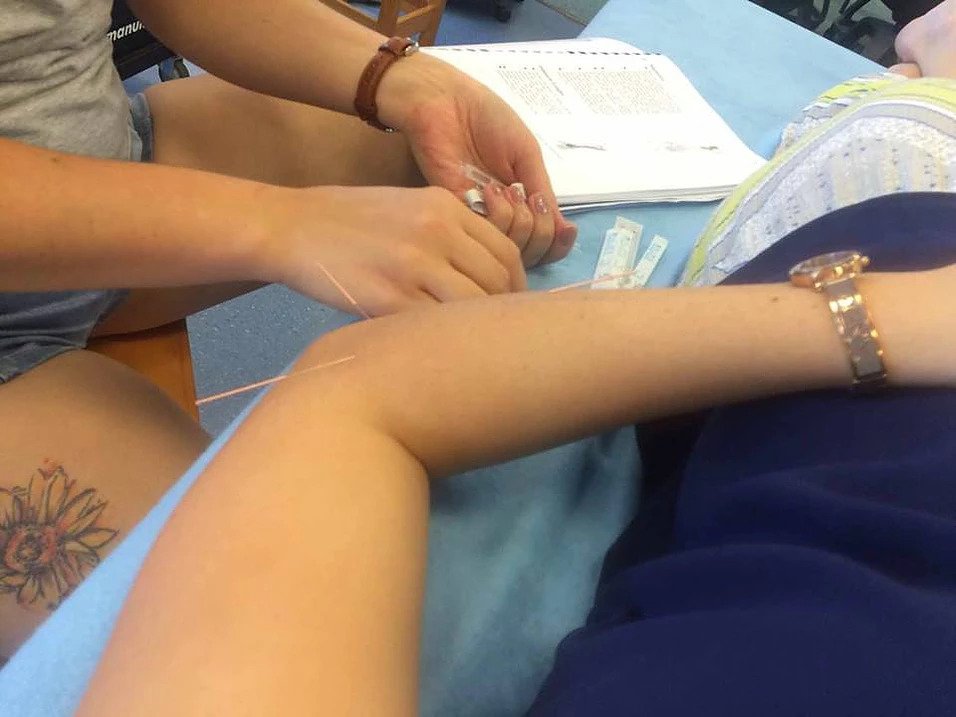
Users of computer or those doing a lot of labouring or home DIY activity can benefit from dry needling and muscle releases in the forearm muscles -
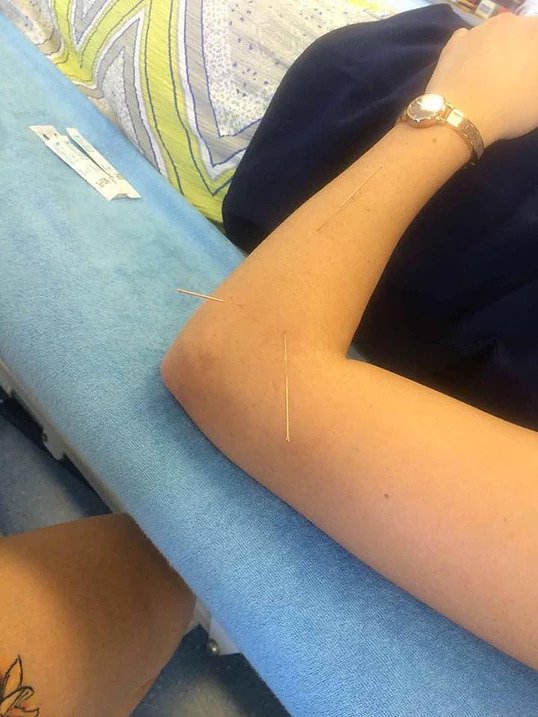
Great evidence exists for the effectiveness of acupuncture around the elbow for sufferers of tennis and golfers elbow -
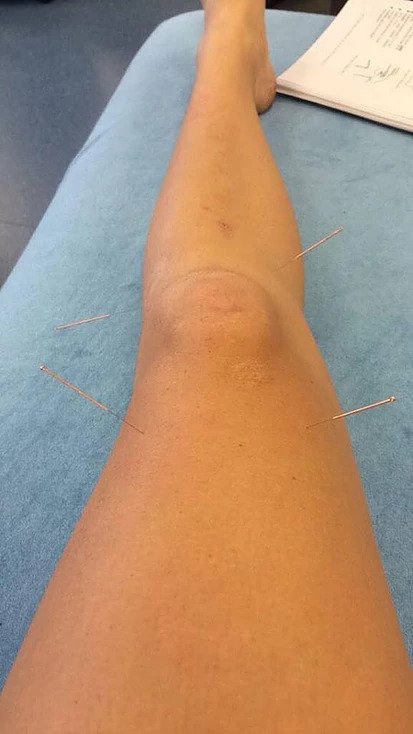
Great for arthritic pain
